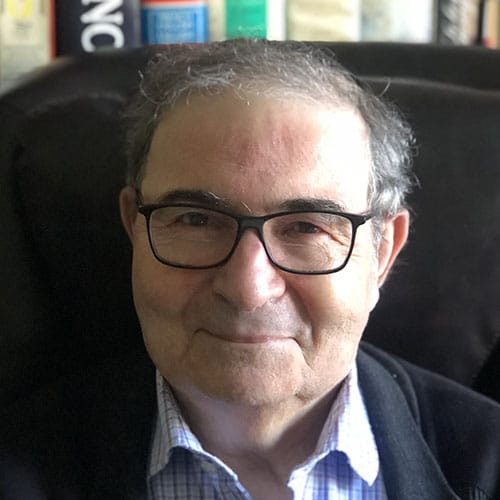 duncan1890/GETTY IMAGES
duncan1890/GETTY IMAGES Jewish tradition teaches that one person is a world. What does this idea mean and why is it so significant?
The Mishna (Sanhedrin 4:5) states that Adam, the first human, was created as a lone figure in order to teach us that if one destroys a single soul, he is as guilty as if he destroyed the entire world, since every human being is descended from one person: Adam. Since a single soul can create an entire world, anyone who sustains one soul is credited with sustaining the whole world.
Indeed, the stories are legion of Holocaust survivors who lost everyone and everything in the war and yet a single survivor often ended up surrounded with a large family, renewing life for generations. The Glatt family story, reported in today.com, is exemplary. Jessica Glatt’s grandfather and grandmother survived the Holocaust and lived to see their great-grandchild. The occasion was dramatically portrayed in a picture of the granddaughter, when she was three months old, “holding her great-grandfather’s arm, his concentration camp tattoo still etched in his skin.”
Throughout history, it is often a lone individual who has had a major impact on the world and even transformed it. Abraham was the first Jew and introduced the concept of monotheism to the world. Moses freed the Jews from slavery in Egypt and received the covenant on Mount Sinai. In modern times, Alexander Fleming discovered penicillin, which led to the development of antibiotics, both of which have saved innumerable lives and changed the nature of medical science. Jonas Salk created the vaccine against polio that saved countless lives, including mine. Galileo’s discovery, in the early 1600s, revolutionized our understanding of our place in the Universe. Marie Curie, who won two Nobel Prizes and was the most acclaimed scientist of her era, discovered radium and plutonium, both used in the treatment of cancer.
What are the ramifications of the idea that a person is a whole world, not just in numbers, but in impact? As the English poet John Donne wrote, no man is an island and “any man’s death diminishes me/ because I am involved in mankind/ And therefore never send to know for whom/ the bell tolls; it tolls for thee.”
The Mishna cites another reason for the fact that we all come from a single human being: Since we all descend from the same progenitor, no one can justifiably claim his father is greater than someone else’s. Jews know only too well that hatred for one group never ends with that group. It reflects a sick society that will end up devouring itself and others. Either we respect each other, no matter how different, or we all end up paying the price. Each person and each group represents so much more than itself. History provides endless examples.
The corollary to the first principle is that no one is free unless everyone is free. When Soviet Jews went to prison for practicing their religion, Jews around the world demonstrated publicly and applied political pressure until the prisoners were set free and allowed to leave for Israel. The current war in Ukraine illustrates that one dictatorship’s attempt to conquer a democratic neighbor is an unspeakable outrage against the idea that all have the right to be free and choose their own destiny. If it’s wrong here, it’s wrong there and it impacts you and me. The idea that every person is a world suggests that the world is an organic whole, a single unit.
The corollary to the first principle is that no one is free unless everyone is free.
Further, individualism does not mean every person for himself but rather what Rabbi Jonathan Sacks termed “the dignity of difference.” Within the framework of unity, solidarity and shared values, there are important and necessary differences. Those differences make us unique, but they must not be a cause for discord. The balance is a difficult one but “the dignity of difference” means that we must find common ground and recognize each other’s integrity in the face of different viewpoints.
For example, practical terms the notion that “each person is a world” is useful in thinking forward to an end to America’s catastrophic divisions. People who hold different views should see themselves as political opponents rather than enemies. We must all work to understand “the dignity of difference.” While we may not always agree with a perspective different from ours, it’s critical to accept that without differences in opinion and perspective, there is no meaningful dialogue.
Each person—along with their beliefs and values—constitutes a world of potential, worth and promise. Whoever undermines or disrespects any person murders the infinite potential within them, and whoever encourages and uplifts others participates in the creation of endless possibilities.
Dr. Paul Socken is Distinguished Professor Emeritus and founder of the Jewish Studies program at the University of Waterloo.























 More news and opinions than at a Shabbat dinner, right in your inbox.
More news and opinions than at a Shabbat dinner, right in your inbox.